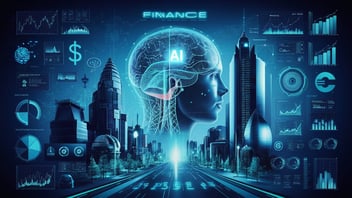
The Impact of AI on Industry and Economy
The rapid advancement of artificial intelligence (AI) is reshaping industries and catalyzing significant economic transformations. To maximize these benefits, global coordination in regulating AI technology is essential:
-
Industry Revolution: AI is now a critical element in the growth strategies of numerous businesses, with the potential to overhaul entire sectors.
-
Economic Impact: The technology promises significant social and economic advancements, enhancing productivity and innovation.
-
Medical Advancements: Assisting radiologists in detecting cancer more effectively.
-
Environmental Sustainability: Identifying strategies for reducing greenhouse gas emissions, as an example.
-
Business Insights: Giving small businesses customer insights to develop more effective products.
-
Transaction Security: Since 1993, AI has been instrumental in analyzing transaction flows and flagging suspicious activities.
-
Preventing Losses: AI and machine learning technologies prevented an estimated $27 billion in fraud-related losses in 2022 alone.
-
Phishing Sophistication: Fraudsters use AI to craft convincing phishing emails.
-
Voice and Video Manipulation: Exploiting deep fake technology to access financial accounts and commit fraud.
- United States: NIST implemented the AI Risk Management Framework and issued an Executive Order for safe AI development.
- European Union: Final stages of the AI Act and introduction of the AI Pact.
- Singapore: Enhancement of AI governance and launch of AI Verify.
-
Data Flow Restrictions: Limitations on data sharing can hinder AI performance across borders.
-
Economic Consequences: These restrictions can decrease productivity and slow technological progress.
-
Flexibility in Innovation: Allows agile development that adapts quickly to new challenges.
-
Effective Risk Mitigation: Prioritizes real-world outcomes over rigid procedural adherence.
-
Gap Analysis: Determine applicable or adaptable existing regulations before proposing new ones.
-
Holistic Regulation: Ensures new frameworks complement and close gaps in existing laws.
-
Standard Harmonization: Aligning standards to support global operations efficiently.
-
Keeping Pace with Technology: Ensuring regulations adapt to rapidly evolving AI technologies.

Blog Post by PDI Marketing Team
Pacific Data Integrators Offers Unique Data Solutions Leveraging AI/ML, Large Language Models (Open AI: GPT-4, Meta: Llama2, Databricks: Dolly), Cloud, Data Management and Analytics Technologies, Helping Leading Organizations Solve Their Critical Business Challenges, Drive Data Driven Insights, Improve Decision-Making, and Achieve Business Objectives.




